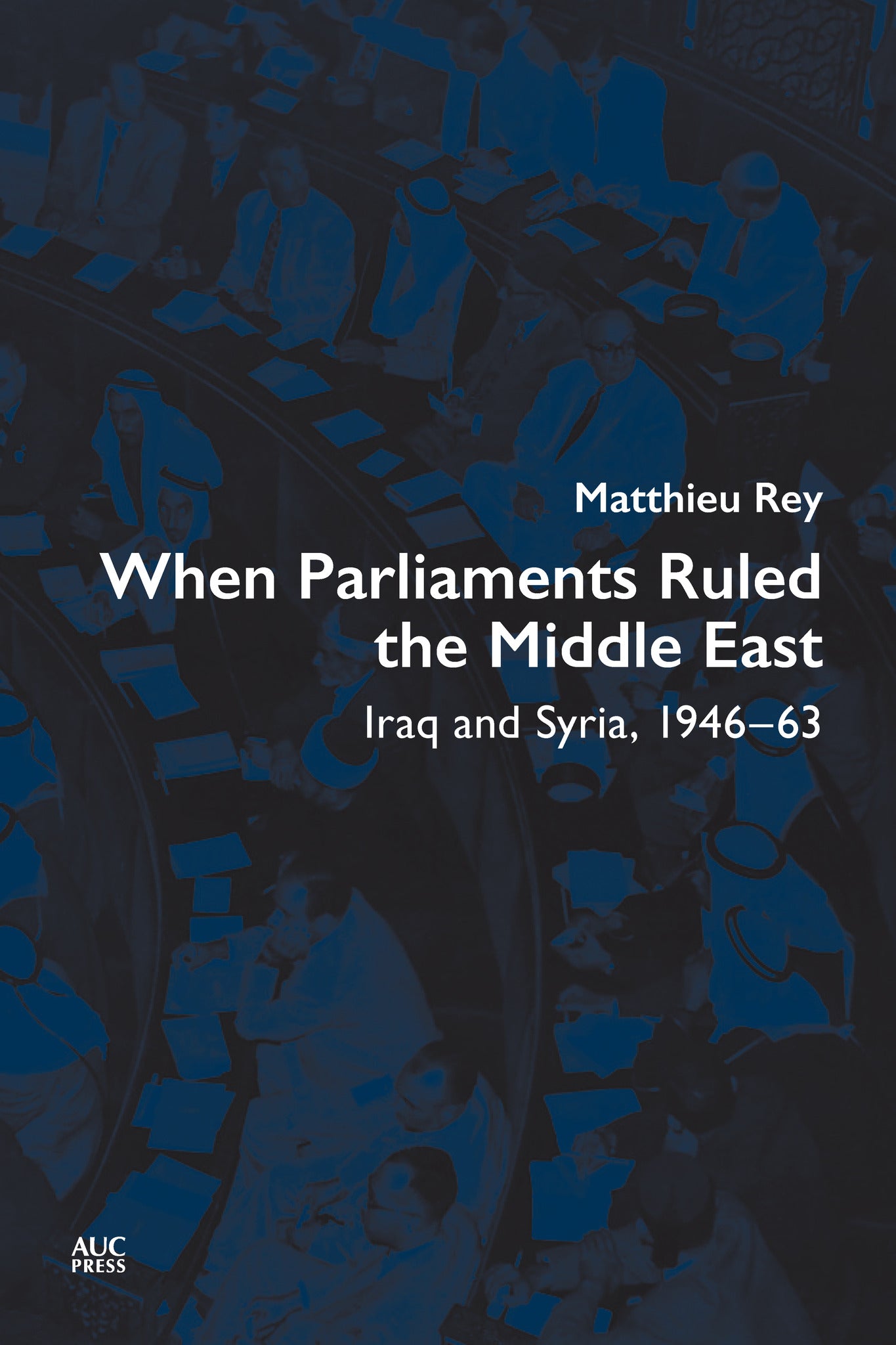We're sorry. An error has occurred
Please cancel or retry.
When Parliaments Ruled the Middle East

Some error occured while loading the Quick View. Please close the Quick View and try reloading the page.
Couldn't load pickup availability
- Format:
-
05 April 2022

An essential study of parliamentary politics in postwar Iraq and Syria, before the consolidation of authoritarian rule under the Ba’th Party
When Parliaments Ruled the Middle East explores three main interrelated issues to clarify what happened between 1946 and 1963 in Iraq and Syria: how and why a parliamentary system prevailed in both countries in the aftermath of the Second World War; what social effects this system triggered, and, in turn, how these changes affected the system; and finally, why the elites in both countries were unable to overcome the unrest that brought an end to both a liberal era and to a certain kind of political game.
Drawing on a vast array of sources and rich archival research in French, English, and Arabic, Matthieu Rey highlights the processes of the parliamentary system in the modern era, which are very common to post-independence countries and to any representative regime. He tackles the intersection of multifaceted political phenomena that were present in that moment in Iraq and Syria, including regular elections, the implementation of emergency law, the freedom of the press, the open expression of opinions, the formation of new political parties, frequent military coups, and the joint exercise of power by members of the old classes and reformist newcomers.
Treating this period as neither an epilogue of the liberal order nor a prelude to authoritarianism, and stressing the contingent, improvisatory aspects of political history, Rey fundamentally questions the transitional nature of the period and in doing so proposes new ways and tools of examining it.

Political structures: democracy, Middle Eastern history, Colonialism and imperialism

"This work is fascinating, not only for its thorough review of events and analysis of developments of political systems in Syria and Iraq but also as a potentially valuable approach for examining parliamentary life in other Arab countries."—Middle East Journal
“History from a novel angle: the efforts to maintain a constitutional monarchy in Iraq and a parliamentary republic in Syria.”—Middle East Quarterly
“[A] stimulating study of parliamentary history. . . a unique contribution to the field. Rey’s book is an important read to anyone interested in Syrian political history. . . . [A] work of piercing historical analysis.” —Syrian Studies Association Bulletin
"[A]ccurate, profound, and poignant. . . . Rey’s analysis fills a large void in the literature and gives readers unprecedented access to the inner functioning of parliaments in Syria and Iraq. . . . When Parliaments in the Middle East is likely to set a novel, fresh trend in the field."—Revue des mondes musulmans et de la Méditerranée
"Focusing on the efforts of bourgeois and middle-class elites to control and mitigate the pressures of social change in representative decision-making processes, Rey sheds light on the neglected history of parliamentarism in the Middle East between the late Ottoman Empire and the demise of liberalism under Ba‘th Party rule. This book will be a crucial reference for students and researchers alike."—Peter Wien, University of Maryland
"Matthieu Rey’s remarkably well documented monograph shows that dictatorship, massive state coercion, ethnic cleansing, sectarianism, and civil war were by no means inevitable. It also demonstrates that the Iraqi and Syrian pluralities could be preserved only by a democratic institutionalization that their respective political elites were unable to undertake." —Hamit Bozarslan, Ecole des hautes études en sciences sociales, Paris
"Matthieu Rey highlights a period in the political history of Iraq and Syria when parliaments and constitutions played a major role, however fractured, in the formation and functioning of civil society and the public spheres, sometimes forgotten in the decades of authoritarian dictatorships that have since predominated."—Sami Zubaida, Birkbeck, University of London
Acknowledgments
Timeline of Key Events
Introduction
The Ottoman and Mandate Roots of the Parliamentary System
The Advent of the Parliamentary System in the Ottoman Empire
1908–18:An Imperial Parliamentary System
Inventing New States (1920–46)
Experimenting with the Parliamentary System,
1946–49
Za‘ama and the Parliamentary System
Establishing Real Sovereignty
The 1947 Elections
1948: Calling into Question the Parliamentary Experiment
Reform and Change: The Parliamentary System in Iraq and Syria, 1949–54
Rearranging the Parliamentary Systems
The Impact of International Relationships
Reforming the Country
Putting theAuthoritarian Pact in Jeopardy
Two New Formulas for the ParliamentarySystem, 1954–58
The Heydays of the Parliaments
Legislative Enterprises: Reshaping Society and the Economy
Adopting Cold War Vocabulary and the Polarization of the Assemblies
The Epilogue to the Parliamentary System
Establishing a True Constitutional Order?
The End of the Parliamentary System
The End of the Post-Ottoman Era
Appendices
1: Thematic Discussions in the January 1955 Session
2: Parliamentary Activity
Notes
Bibliography
Index



